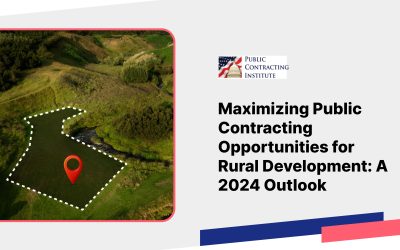It goes without saying that offerors should carefully read the entire solicitation before they prepare their offer. But how many really do that? And even if they read the entire solicitation, do they always follow the instructions precisely? A good example of failing to read the instructions, or intentionally ignoring them, is found in URS Federal Servs., Inc., B-411024.4, April 30, 2015. In this bid protest case, an offeror who failed to follow the instructions lost its bid protest, and was properly not considered for award by the agency.
URS protested its exclusion of its proposal from the competitive range in a solicitation for task orders from holders of basic ordering agreements (“BOAs”) in the Enhanced Army Global Logistics Enterprise (“EAGLE”). The Solicitation required offerors to submit proposals through the Army Single Face to Industry Bid Response System. If an offeror had teammates or subcontractors who elected to provide their cost/price information to the agency independently from the prime offeror’s proposal, the teammate or subcontractor was required to include “Attachment 16,” which contained information on the subcontractor, the prime contractor and its BOA number. The solicitation specifically advised offerors that:
failure of any teammates/subcontractors …submitting cost/price proposals independently to the Government…to provide Attachment 16 shall render the Offeror’s proposal non-compliant. The proposal will not be further evaluated and will not be further considered for award.
When there were problems with the Army Single Face to Industry Bid Response system, the agency notified all EAGLE BOA-holders that offerors could submit their proposals by e-mail. URS, and its subcontractor, DADL, both submitted their proposals by e-mail. However, DADL failed to submit Attachment 16. The Army deemed URS’s proposal non-compliant and excluded it from the competitive range. URS protested its exclusion, stating that Attachment 16 was not required if the proposal was e-mailed.
The Government Accountability Office (“GAO”) noted that the requirement to include Attachment 16 with all independently submitted cost proposals was “clear and unambiguous.” Not only that, but both DADL and URS (which submitted a proposal as both a prime contractor and a subcontractor) had included Attachment 16 as part of other submissions for other offerors—suggesting that URS’s reading of the solicitation was contradicted by its own actions and the actions of its subcontractors and teammates. GAO noted that the agency never revoked the requirement for Attachment 16 when it invited e-mail submissions, and that a clearly stated requirement that is considered material to the needs of the government indicates that offerors must submit it, or their offer may not form the basis of award. GAO held that the requirement for Attachment 16 was a “plain and unambiguous requirement set forth in the solicitation,” and denied URS’s protest.
Potential offerors must follow the solicitation’s instructions or risk having their proposals rejected. The fact that URS and DADL followed the instructions for some of their proposals, but not for the protested proposal, indicates that they probably understood the solicitation requirement—they just didn’t comply with it, probably by mistake.
If URS really believed that the e-mail invitation had changed the solicitation, they should have asked the Contracting Officer a question about this in an e-mail? Many offerors won’t ask a question if “the period for asking questions about this Solicitation is over.” (We do not know if that was the case here). But even if the question period is over, potential offerors may always ask a question about an ambiguity in a solicitation, right up to the due date and time for submission of proposals. This is very clear from the numerous GAO cases on solicitation ambiguities, and from the GAO Bid Protest Rules themselves, which state that protests based on alleged improprieties in a solicitation must be filed prior to the time set for receipt of initial proposals. 4 C.F.R. §21.2(a)(1). An email to the contracting officer alleging ambiguity in a solicitation submitted prior to the due date would be construed by the GAO as an informal agency level protest, and would be timely if the agency fails to correct the ambiguity. And if the agency either ignores or denies that informal protest, the contractor can subsequently file it at the GAO within 10 days of the bid opening or RFP closing.

